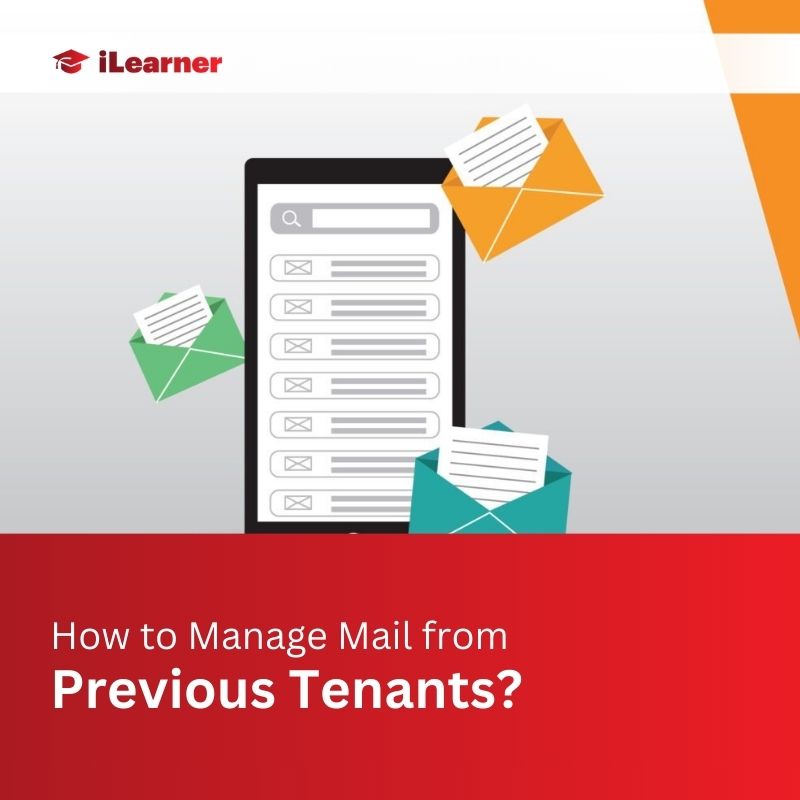As a landlord, the transition between tenants can be a challenging time. Alongside the tasks of cleaning and preparing the property for new occupants, dealing with mail left behind by former tenants can add unnecessary stress.
However, it’s essential to handle this aspect of property management promptly and legally to avoid potential issues.
This guide aims to provide landlords with comprehensive strategies for effectively managing mail from previous tenants while adhering to legal and ethical standards.
Understanding the Importance of Tenant Mail Management
Legal Obligations and Consequences
Landlords have legal obligations regarding tenant mail, including the responsibility to ensure its proper handling and privacy protection. Failure to do so can result in legal consequences such as fines or imprisonment.
Necessity of Forwarding Address
Obtaining the forwarding address of former tenants is crucial for legal and communication purposes, such as returning security deposit funds or sending legal notices in case of disputes.
Prohibited Actions
Landlords must refrain from unauthorized actions such as opening or disposing of tenant mail, as these actions violate federal laws and can lead to severe penalties.
Strategies for Managing Mail from Previous Tenants
Forwarding Mail to Previous Tenants
- Writing “Return to Sender” with New Address: Landlords can mark mail with the former tenant’s new address and instruct the postal service to return it to the sender.
- Requesting Mail Forwarding Service: Utilizing the mail forwarding service offered by the post office ensures that mail is redirected to the tenant’s new address automatically.
- Contacting Tenants: Directly contacting former tenants to obtain their new address is an effective way to ensure mail reaches them promptly.
Handling Mail When Tenant’s Address is Unknown
- Expectation for Tenant Cooperation: Tenants are expected to provide their forwarding address upon vacating the property, but this doesn’t always happen.
- Landlord Responsibility: Landlords are responsible for managing mail from previous tenants, even when their address is unknown, to prevent legal complications.
Proper Steps for Landlords
- Contacting the Tenant: Initiating communication with the former tenant to address the mail issue and obtain their new address if possible.
- Temporary Mail Holding: Temporarily holding mail according to the lease agreement provisions until it can be forwarded or returned.
- Returning Mail to Sender: If unable to forward or contact the tenant, returning mail to the sender with appropriate markings ensures its proper disposition.
Legal and Ethical Considerations
Prohibited Actions and Tampering
Landlords must adhere to legal procedures and refrain from tampering with tenant mail, as this constitutes a violation of federal laws.
Legal Procedures for Mail Handling
Properly marking mail as “Not at This Address” or “Moved” ensures its correct handling by postal workers and prevents further delivery to the property.
Notice for Postal Workers
Leaving a notice for postal workers about the former tenant’s status helps ensure that mail is sorted correctly and prevents it from being delivered to the property.
Dealing with Deceased Tenant’s Mail and USPS Collaboration
Handling Mail in Case of Tenant’s Death
In the unfortunate event of a tenant’s passing, landlords must handle their mail with sensitivity and compassion, including completing necessary forms and notifying relevant organizations.
Collaboration with USPS
Collaborating with the United States Postal Service (USPS) ensures proper mail management and adherence to legal procedures for handling undeliverable mail.
Preventing Receiving Mail from Previous Tenants
Encouraging Tenant Cooperation
Landlords can encourage tenants to update their address before moving out to prevent issues with mail handling.
Legal Limitations on Address Changes
Landlords must adhere to legal limitations regarding change of address forms and refrain from completing them on behalf of tenants without proper authorization.
Communication with Tenants
Clear communication with tenants regarding mail forwarding and updating rental agreements helps prevent issues with mail handling in the future.
Conclusion
Effectively managing mail from previous tenants is essential for landlords to avoid legal complications and maintain tenant privacy.
By following the strategies outlined in this guide and adhering to legal and ethical standards, landlords can ensure smooth transitions between tenants while protecting their legal rights and responsibilities.
FAQs (What To Do With Previous Tenants Mail)
Q1. Can I open mail addressed to previous tenants?
No, opening mail addressed to previous tenants is illegal and constitutes a violation of federal laws regarding mail privacy.
Q2. What should I do if I accidentally open mail intended for a previous tenant?
If mail is accidentally opened, reseal the package or envelope, write “return to sender,” and leave it in the mailbox for proper handling by the postal service.
Q3. Am I responsible for holding onto a former tenant’s mail for an extended period?
Landlords are not obligated to hold onto a former tenant’s mail indefinitely. However, they must ensure its proper handling according to legal procedures until it can be forwarded or returned.
Q4. Can I fill out a change of address form for a previous tenant?
No, landlords must not fill out change of address forms on behalf of previous tenants without proper authorization, as this constitutes a violation of federal laws.
Also Read:
- Tenants In Common Vs Joint Tenants With Right Of Survivorship
- Tenants’ Rights When Landlord Sells Property: A Comprehensive Guide
- What Is Tenant Estoppel Certificate In A Commercial Lease
- How Much Can a Landlord Raise Rent in Florida?
- Are Evictions Public Record
- Understanding Squatters’ Rights in Colorado: A Comprehensive Guide
- Tenant Rights In Colorado: Rental Laws For Landlords




